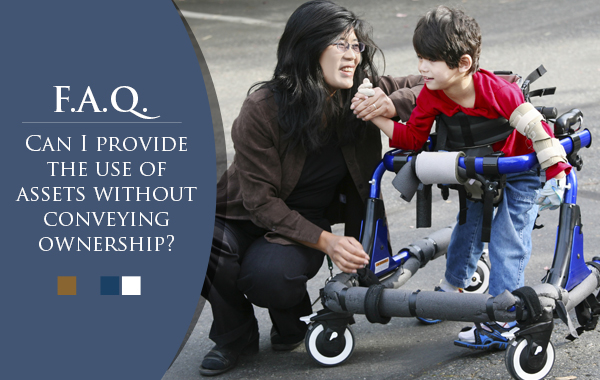Can I provide the use of assets without conveying ownership?
QUESTION: Can I provide the use of assets without conveying ownership?
ANSWER BY RICK COURTNEY:
We’ve often had people ask, how can I provide money and resources for the care and needs of a spouse or a child or grandchild? And one of our best answers for that is often a trust. A trust is a relationship. It’s not just a document. It’s not a form. A trust is a relationship.
I may decide to set up a trust for the benefit of my child. In that situation, I create a trust and name a trustee that would be the person or the financial institution who would take care of assets that I put in that trust. They will manage those. They will make disbursements or payments out of the trust for the benefit of that child, but the child won’t own those assets. They are owned by the trust.
The trust is a three-way relationship that provides for the needs of that beneficiary and allows a trustee who is able to effectively manage to own and take care of those assets.
There are many situations where a trust is a great planning tool. For instance, if I have a spouse who may be incapacitated, then I don’t want to leave assets directly to that spouse in my will. I would want to set up a trust for that spouse and name a child or someone else to be trustee and take care of their needs with the assets in the trust.
I may have a child with a disability. I’d want to have a special needs trust similar to one we’ve done for our daughter. And that trust would hold and manage assets that we place in that trust – or that other relatives or family members could place in that trust as well – and they would use them to take care of that child for the rest of her life.
The situation may arise where you have an adult child who really can’t manage money, maybe a spendthrift person. That’s when a trust is particularly appealing because you can leave assets for the benefit of that spendthrift person and leave them in the hands of somebody – a trustee or a bank – who can effectively manage them and hold them, but will make sure that the payments go out for the things that you want to provide for that child. And there are other reasons to use a trust. They can be used to take assets out of your estate if you need to plan for estate taxes.
So trusts are very flexible. They are a wonderful planning tool and they meet a variety of needs to take care of a spouse, a child, another family member when you don’t want them to own the assets that you want to give them.
